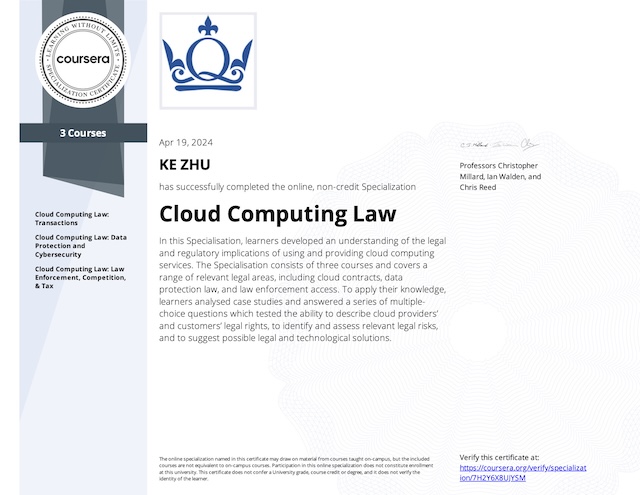The law of contracts is both judge made (based on past decisions) and legislature made (based on statues), all 50 states have enacted major parts of the Uniform Commercial Code or UCC. The UCC governs the sale of goods.
The contract to pay money for a service, is likely to be governed by common law, meaning law created over time by judges. With regard to services, many jurisdictions have health and safety regulations as well as consumer protection statutes that may regulate the transaction.
The common law is judge made law handed down in decisions that have precedential authority with regard to similar disputes. The common law of contract not withstanding the UCC still has a big role to play in knowing contract law. Common law governs not only service contracts, but it supplements the UCC’s coverage of sale of good contracts.
Default, Altering and Mandatory Rules
The effect of many of the rules can be altered by agreement of the parties. Rules that the parties can contract around are often called default rules or gap filling rules. Many rules are merely legal presumptions that only govern when the parties have remained silent, in the absence of agreements to the contrary.
Default rules can be established by common law courts or by legislatures. When a court decision says that future parties are “free by apt and certain words” to contract for an alternative result, the decision is announcing a default rule. When a statute prescribes a rule that will apply “unless otherwise indicated” in a private contract, it is announcing a default rule.
When a rule is merely a default, it’s important to understand the necessary and sufficient requirements for opting out of it, or what are known as altering rules. Altering rules establish the necessary and sufficient conditions for displacing a default. Not every contract rule can be contracted around. Those that can not be changed are termed mandatory rules or immutable rules. Mandatory rules are established by both courts and legislators.
In the last 60 years, legislative and administrative bodies have promulgated a host of immutable rules that restrict freedom of contract. Some types of transactions, such as those concerning insurance and employment, have to large extents been removed from the general law of contract, and are now subject instead to a host of specific mandatory statutory rules.
Default rules are not just about contract law, though. Every realm of law can be characterized as a mixture of default and mandatory provisions. Any time you see the word reasonable included in the description of a default, there’s a good chance that hypothetical or majoritarian gap filling is at work. But the law sometimes chooses to fill gaps with terms that do not accord with the hypothetical contracting approach.
The contra proferentem (against the offeror) rule is to resolve a contractual ambiguity by interpreting the contract against the drafting party. It aims to penalize sloppy drafting rather than attempting to divine what the parties would have expressly contracted for, if they had been asked to resolve the ambiguity themselves.
Penalty defaults or information forcing defaults, that intentionally penalize a contractor failing to fill a gap, can further both equity and efficiency by giving a contractor the incentive to expressly say to the other party and to the world what they want.
The Concept of Consideration
Consideration is a traditional prerequisite to enforcing a contractual promise.
The formation of a contract requires a bargain in which there is a manifestation of mutual assent to the exchange and a consideration.
Section 17 of the Second Restatement of Contracts
It’s helpful to think of consideration as what’s given in return for someone else’s promise. It is the quid given for the quo in the phrase “quid pro quo”. “A valuable consideration, in the sense of the law, may consist either in some right, interests, profit, or benefit accruing to the one party, or some forbearance, loss, or responsibility given, suffered, or undertaken by the other.”
“A return promise to be a sufficient consideration doesn’t have to be an actual detriment, it is enough for it to be a legal detriment to the promisee.” A legal detriment means promising to do anything that you didn’t have to do, or promising to forbear from doing anything that you might have legally done.
Under the benefit-detriment conception of consideration:
- Either an actual benefit to the promisor, or
- A legal detriment to the promisee
is a sufficient consideration.
The consideration requirement is meant to preclude legal enforcement of gratuitously promises, i.e. the promises for which there is no return promise. The problem with the legal detriment conception of consideration is that, savvy contractors could manipulate their return promised to qualify as a legal detriment.
Bargained-for Consideration
The common law responded to this problem by replacing the early conception of consideration as either “a benefit to the promisor”, or “a detriment to the promisee” with what is known as, the Bargained-for consideration (or Inducement consideration).
To constitute consideration, a performance or a return promise must be bargained for, if it is sought by the promisor in exchange for his promise and is given by the promisee in exchange for that promise.
| the benefit-detriment conception of consideration | Focuses on the welfare of the parties. Still exerts considerable influence in England and Commonwealth countries. |
| the bargain for conception of consideration | Focuses on the parties’ reasons for entering into the transaction. Has largely won the day in the U.S. |
If the requirement of consideration is met, there is no additional requirement of … a gain, advantage or benefit to the promisor or a loss, disadvantage, or detriment to the promisee.
Section 79(a) of the Second Restatement
Modern courts tend now to require that the promisee’s return promise was bargained for (by the promisor) – that the return promise actually induced the promisor to make his promise.
Promissory Estoppel
Another basis for enforcing promises is known as promissory estoppel.
To get around the consideration requirement, the court invoked the doctrine of equitable estoppel. The court conceded that the promise, “being given without any valuable consideration was nothing more than a promise to make a gift in the future and that ordinarily such promises are not enforceable”.
However, the court held that a promisor who promises to make a gift may be estopped, that is “stopped or barred from denying the existence of the consideration”, if the promisee changes her position in reliance on the promise.
Equitable estoppel traditionally only applied to representations of facts. If you represented to a patient that you were a specialist, you can be estopped from later denying it in court, even if you in fact are not a specialist. The doctrine of equitable estoppel is commonly understood to provide a shield not a sword. Estoppel is a defense that prevents another from denying certain facts.
However, in Andrew D. Ricketts vs. Katie Scothorn case, the doctrine is applied as a sword to support a new cause of action that would otherwise not exist. One might instead read the opinion as a good example of judicial craft under the common law. The court observed a form of injustice that the law might remedy, finding no clear legal grounds at hand and facing the bar against enforcement under the doctrine of consideration, it took a neighboring legal category “estoppel” and stretched it a bit to do new work.
The modern term Promissory Estoppel dates from Samuel Williston’s 1920 treatise on contract law. Williston carefully studied cases and convinced himself that the consideration doctrine could not explain all the case outcomes. In his treatise Williston collected a number of cases including Ricketts in which reliance seemed to be doing the job of consideration. It was a substitute for consideration. Recognizing the differences between the well-established doctrine of equitable estoppel and the doctrine invoked by this collection of cases, Williston suggested a new name for the latter, promissory estoppel.
A promise which the promisor or should reasonably expect to induce action or forbearance on the part of the promisee or a third person and which does induce such action or forbearance is binding if injustice can be avoided only by enforcement of the promise. The remedy granted for breach may be limited as justice requires.
Section 90, The Second Restatement
You can see that it has three elements:
- The promisor should have expected her promise to induce reliance
- The promise must actually induce reliance
- Injustice can be avoided only by the promisor’s enforcement
Expectation damages put the promisee in the position she would have been in, had the promise been performed.
But section 90 permit courts to limit the remedy as justice requires.
Reliance damages compensate the promisee for the costs incurred in reliance on the breached promise and so put the promisee in the position she would have been in, had she never relied on the breached promise.
Ex Ante vs Ex Post
Common law court opinions have changed over time about whether change circumstances can affect the parties obligations under a contract. The old rule is ‘pacta sunt servanda’, which means agreements are to be honored.
The rules have become somewhat more lenient over time. If the parties made their agreement based on an assumption about the world that turns out to be false, that could relieve a party of the responsibility to follow through on the promise. But possible changes in the world that parties were aware of when they formed the contract will not invalidate the contract.
“Ex Ante” and “Ex Post” mean respectively “from before” and “from after”. The Ex Ante and Ex Post perspectives, are always defined with regard to some event that “might occur”, or “has occurred”. These perspectives resonate in different ways with our systems three core lawmakers: juries, judges, and legislators.
| Juries | Placed in Ex Post Position. The quality of mercy more often resonates with the Ex Post perspective. |
| Judges | Engage in a mixture of Ex Post and Ex Ante decision-making. Deciding the case before them, as well as creating precedence that will influence the decision in future disputes. More likely to adopt rules that makes sense from the Ex Ante perspective. |
| Legislators | Dominantly to promulgate rules that will apply prospectively, and thus naturally are likely to take the Ex Ante perspective. Hence legislators are keenly attuned to Ex Ante deterrence arguments. |
In contractual settings, there is often more possibility of agreement Ex Ante (the creation of the contract) than Ex Post (its formation). When we talk about what the future parties want, we’re essentially taking the Ex Ante perspective, which are particularly prized in law and economics.
While law and economics uses the Ex Ante perspective to analyze efficiency, John Rawls used a more radical Ex Ante perspective (behind the veil of ignorance) to analyze equity.
When there is a conflict between a non-disclosure agreement and public policy, one response is to hold that the non-disclosure agreement should be unenforceable as against public policy. One should be free to disclose any negative information without risking legal liability. But this result does not help make the world better when judged from the Ex Ante perspective. It might be wiser to enforce the non-disclosure agreement, and at the same time, to hold liable if one failed to disclose a safety defect. Both options will cause damages and lead to costs, but one can choose to pay for the smaller damages.
Ex Ante analysis might suggest that enforcing the non-disclosure agreement, and coupling breach damages with higher tort damages for non-disclosure of safety concerns, would produce a more efficient and safe equilibrium.
My Certificate
For more on American Contract Law: Essentials, please refer to the wonderful course here https://www.coursera.org/learn/contracts-1
Related Quick Recap
I am Kesler Zhu, thank you for visiting my website. Check out more course reviews at https://KZHU.ai



